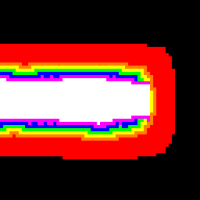
Only applicable if your Jira administrator has created one or more custom fields. Search for issues that were created by the user with email address :Ĭreator that full-stops and symbols are reserved characters, so the email address needs to be surrounded by quote-marks.) Search for issues that were created by Jill Jones: ~, !~, >, >=, <, <= CHANGED, WAS, WAS IN, WAS NOT, WAS NOT IN Note that an issue's creator does not change, so you cannot search for past creators (e.g. Search for issues that were created by a particular user. You can search by the user's full name, ID, or email address. Be sure to use quote-marks ( ") if you omit the quote-marks, the number you supply will be interpreted as milliseconds after epoch (). Or use "w" (weeks), "d" (days), "h" (hours) or "m" (minutes) to specify a date relative to the current time. Please note that the search results will be relative to your configured time zone (which is by default the Jira server's time zone).

Note that if a time-component is not specified, midnight will be assumed. Search for issues that were created on, before, or after a particular date (or date range). When used with the IN and NOT IN operators, component supports:įind issues in the "Comp1" or "Comp2" component:įind issues in the "Comp1" and"Comp2" components:Ĭomponent in (Comp1) and component in (Comp2)įind issues in the component with ID 20500: ~, !~, >, >=, <, <= WAS, WAS IN, WAS NOT, WAS NOT IN, CHANGED Search for issues that have or do not have attachments. When used with the EQUALS and NOT EQUALS operators, this field supports:įind issues that are assigned to John Smith:įind issues that are currently assigned, or were previously assigned, to John Smith:įind issues that are assigned by the user with email address = that full-stops and symbols are reserved characters and need to be surrounded by quote-marks. ">") use the version order that has been set up by your project administrator, not a numeric or alphabetic order. IS, IS NOT, IN, NOT IN, WAS, WAS IN, WAS NOT, WAS NOT IN, CHANGED Search for requests that have been approved or require approval.

Note that full-stops are reserved characters and need to be surrounded by quote-marks.įind issues with an AffectedVersion of "Big Ted":įind issues with an AffectedVersion ID of 10350: When used with the IN and NOT IN operators, this field supports:įind issues with an AffectedVersion of 3.14: When used with the = and != operators, this field supports: WAS, WAS IN, WAS NOT, WAS NOT IN, CHANGED You can check current compatibility here.=, !=, >, >=, ") use the version order that has been set up by your project administrator, not a numeric or alphabetic order. The goal for the release lifecycle of this library is to provide fully compatible version with the most recent Jira Server version at the time of its release plug provide backward compatibility for officially supported Jira Server versions. Javadoc is not overwhelmingly rich, but the code and the object model is rather self-explanatory and follows clear naming convention. JRJC should be useful for integrating systems using JVM-based languages (like Java) with JIRA and specifically for integrating Atlassian products with themselves. In the future though JRJC may be extended to handle things like caching (conditional GET, metadata) or provide a higher level of abstraction on top of existing REST API - completely shielding the user from the specifics of REST. It provides a domain object model of JIRA entities on the client side - objects representing issues, priorities, resolutions, statuses, users, etc. JRJC currently provides a thin layer of abstraction on top of REST API and related HTTP(S) communication. Jira REST Java Client is a Java library (usable from any JVM language) which allows to easily talk to any Jira Server 4.2+ instance using new (and still evolving) REST API.


 0 kommentar(er)
0 kommentar(er)
